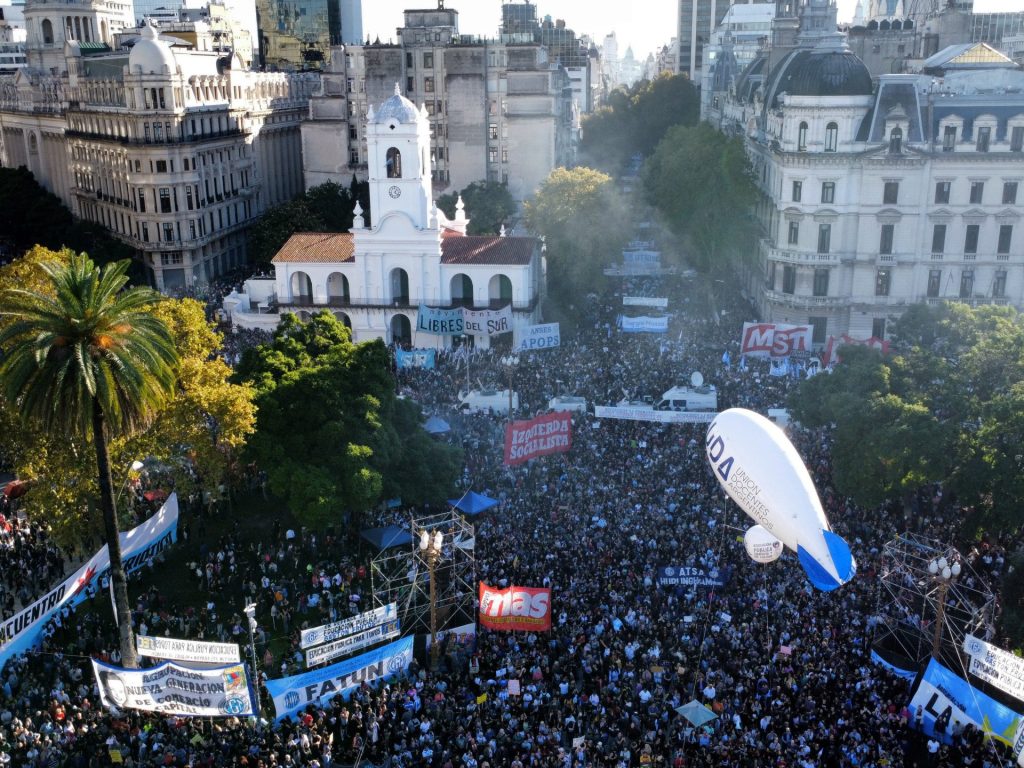President Milei’s aggressive approach to cutting public spending has led to massive protests across Argentina, particularly in response to education budget cuts. The protests have brought together students, university professors, trade unions, and opposition parties to push back against Milei’s radical austerity measures. Aerial footage showed hundreds of thousands of people rallying in Buenos Aires and other cities, calling for an end to budget cuts that threaten the closure of public universities. The University of Buenos Aires claimed that more than 500,000 people participated in the protest in the capital alone.
During his election campaign, Milei had used a chainsaw as a symbol of his plan to drastically reduce public spending and shrink the government, despite economic challenges. Since taking office, he has been closing ministries, cutting subsidies, and laying off state workers to curb government expenditure. Despite facing opposition from various sectors, Milei celebrated the country’s first quarterly fiscal surplus since 2008 on Monday. He declared that his government was making the impossible possible, even in the face of strong opposition.
The public education system in Argentina is highly regarded in Latin America, with free public universities attracting millions of students. However, Milei has accused these institutions of promoting socialism and indoctrinating students. As part of his austerity policy, the government has reduced the budget of public universities by 71 percent, leading to concerns about the sustainability of the education system. The country is also grappling with high inflation rates, further complicating the situation for universities.
University officials, including the rector of the University of Buenos Aires, have expressed concerns about the viability of the institutions in light of the budget cuts. There are fears that universities may have to shut down, leaving students stranded mid-degree. This has ignited a sense of outrage among the population, who view free and quality university education as a fundamental right. Nobel Peace Prize winner Adolfo Perez Esquivel spoke at the protests, emphasizing the importance of defending public, open, and free universities as a significant achievement for the people of Argentina.
The protests reflect a broader societal concern about the implications of Milei’s austerity measures and their impact on essential services like education. The government’s focus on slashing public spending to address economic challenges has sparked backlash from various sectors of society, including students, educators, and trade unions. The demonstrations highlight a growing divide between policymakers advocating for fiscal discipline and those advocating for the protection of public services and social rights.
It remains to be seen how President Milei will respond to the widespread protests and growing resistance to his austerity measures. The pushback against education spending cuts is just one aspect of the larger debate surrounding the government’s approach to addressing economic challenges. As the protests continue and tensions escalate, it is clear that the issue of public spending and its impact on essential services like education will remain a contentious and deeply polarizing issue in Argentina.















